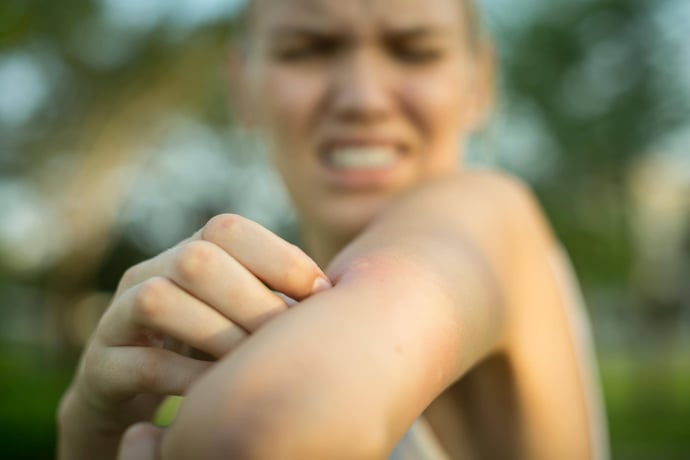Chronic skin conditions can vary significantly based on where you live. Environmental factors like climate, topography, and air quality play a significant role in skin health, especially in people with skin conditions such as psoriasis, eczema, or rosacea. Living in certain areas may either alleviate or exacerbate the severity of symptoms.
Humidity is an essential factor that can affect skin conditions. High humidity levels can worsen conditions like eczema and fungal skin infections by promoting the growth of fungi and bacteria1. In contrast, dry air can make the skin itchier in people with eczema or dermatitis. Living in areas with high humidity, such as the southeastern United States, can exacerbate skin conditions during the warmer months2.
Living near the ocean can also impact your skin health. Seawater contains minerals and iodine that have anti-inflammatory effects on some skin conditions3. Spending time at the beach may alleviate symptoms of conditions such as psoriasis and eczema. However, exposure to saltwater and sun can also cause flare-ups in some people with chronic skin conditions.
Air pollution is another factor that can impact skin health. Exposure to pollutants like ozone, nitrogen dioxide, and particulate matter can irritate the skin and exacerbate conditions like rosacea and eczema4. Living near high-traffic areas or industrial zones can increase the risk of developing skin inflammation and itchiness.
Lastly, climate can play a role in skin health. People who live in dry climates, like the southwestern United States, tend to have a higher rate of eczema and psoriasis than those who live in moist climates5. Areas with dry climates can worsen the symptoms of these conditions, leading to more frequent flares.
In conclusion, climate, humidity, air quality, and living near the ocean or pollution could influence the severity and frequency of symptoms from skin conditions like eczema, psoriasis, or rosacea. To prevent flare-ups and manage chronic skin conditions, it is necessary to be mindful of your environment and take steps to protect your skin, such as proper skincare, frequent check-ups with dermatologists, and avoiding known triggers.





